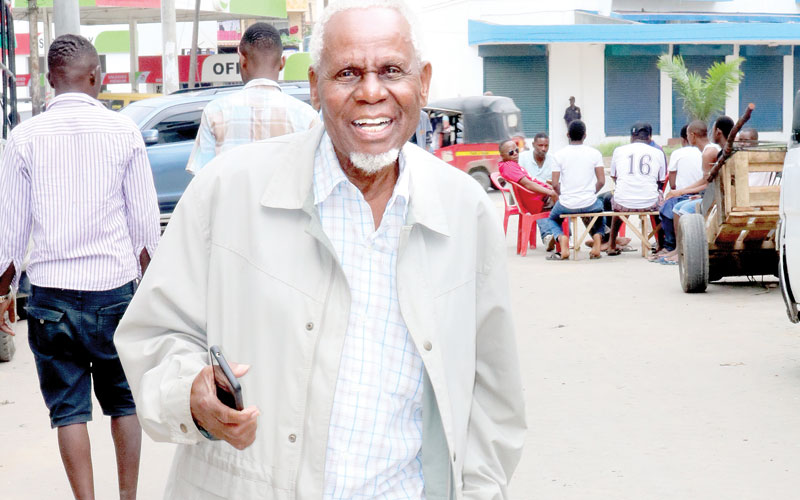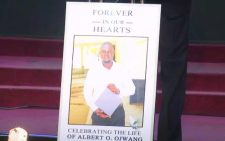I sneaked out of university to run for MP, says Dr Tsuma

When Chibule wa Tsuma took a petition to legalise mnazi (Palm wine) to State House in 1980, he stepped on the powerful toes of former President Daniel arap Moi.
But that was no issue for Tsuma, for mnazi was a matter of life and death for his constituents in Kilifi south. It is what saw him through school and gave him a shot not only in attaining his degree in medicine, but also in becoming a politician and the second man from the Coast to vie for presidency. His father was a palm wine tapper, a profession from which Tsuma’s Sh15 school fees came. And he was not the only one: most families in Kilifi and the larger Coast province depended on palm wine tapping as a source of income.
Vital delegation
When the ban on the milky drink was announced, he was up in arms.
“It was not easy, so I sought the help of several leaders, but they did not help much. I had to moderate locals, and with the blessings of wazee wa kaya, we went to State House. As it turned out, the President did not want to hear any of it. He gave us only 15 minutes to clear off State House or face the consequences, without even a word about our grievances,” the 78-year-old former politician says. His courage and resilience in fighting for the rights of his people put his political career at stake, but he is glad his efforts bore fruit. Today, Pwani people are free to tap and sell mnazi both as a traditional lifestyle and economic activity.
This was just one incident that brought Tsuma to the limelight. His journey started when he was at Makerere University for his medical degree in March 1969. As a young man, he was already opinionated in politics.
So, when he completed his studies, he got an internship at the Coast General Hospital, where he started practising medicine the same year. His interest and passion for politics saw Ronald Ngala approach and convince him to vie for the Kaloleni parliamentary seat.
“I was defeated, but the political fire was ignited. After losing, I went back to Makerere for my postgraduate studies. In 1974, which was supposed to be my final year at the university, I had to run away from school to come and run for MP. Again I lost. I petitioned and still lost. So I decided to complete my postgraduate studies,” says the jovial mzee.
He was politically aware when Kenya gained independence. “I had seen enough to thirst for the change much needed and I wanted to be amongst the people who created it. So again in 1979, I ran for MP for Kaloleni. This time round, I won and was ready to serve my people,” he says. He regained the seat in 1984, but lost it in 1988 when Kilifi South was split into two, dividing up his support base.
Seven Bearded Sisters
Since he was educated and in step-in-step with the political movements in the country, he knew the political works of everyone from Jomo Kenyatta to Moi and he was not happy with their leadership.
Together with current Siaya Senator James Orengo, Abuya Abuya, Koigi wa Wamwere, Mashengu wa Mwachofi, Onyango Midika and Lawrence Sifuna, they formed a loose group, which was nick-named the Seven Bearded Sisters by then Attorney General Charles Njonjo.
In 1992, Tsuma became the second man from the Coast to run for president. However, he emerged a distant fifth with only 15,000 votes. Ronald Ngala was the first coastal to run in 1963 and Prof Katama Mkangi the third, in 1997. Although, not many young people would recognise him if they met him today, Tsuma has left a mark on coastal history. He is considered brave and resilient in taking on this huge challenge.
“I was not happy about how the country was being governed and I already had my plans on the changes I wanted to introduce. But as you know I lost. Verily, I even lacked votes from my own strongholds. The people from the Coast were afraid to even stand up with their own son,” Dr Tsuma muses.
Citing lack of money as one of the biggest challenges within the political scene, Tsuma says times have changed. “Money and money! Politics in Kenya is all about money. The ones with the money rule, whether you like it or not. But things changing. Some people are fighting back. During my time if you challenged the status quo everything you had was shut down,” he concludes.












